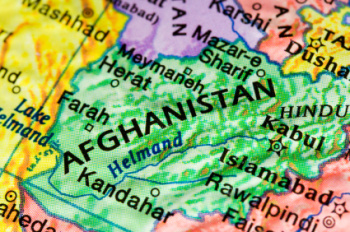Having dumped hundreds of millions of dollars over the last decade-plus creating an air force for Afghanistan, the Pentagon is looking to virtually re-do the entire scheme, proposing another $814 million to replace the Russian-made helicopters the US bought with American-made Black Hawk helicopters.
 Afghanistan’s remnant air force at the start of the US occupation included a handful of old Soviet helicopters from the Soviet occupation. With Afghanistan’s limited pilots more experienced at flying Soviet planes, the US bought a number of Mi-17 helicopters from Russia and the Czech Republic, forming the backbone of the Afghan Air Force to this day.
Afghanistan’s remnant air force at the start of the US occupation included a handful of old Soviet helicopters from the Soviet occupation. With Afghanistan’s limited pilots more experienced at flying Soviet planes, the US bought a number of Mi-17 helicopters from Russia and the Czech Republic, forming the backbone of the Afghan Air Force to this day.
The Pentagon is now arguing that they should replace the entire fleet of helicopters with UH-60 Black Hawk helicopters, citing “legal barriers” in the acquisition of additional Russian-made helicopters and parts over the past couple years of hostility.
It is noteworthy that the Pentagon is pushing this plan before President-elect Donald Trump’s inauguration, as Trump is said to plan a rapprochement with Russia which would likely resolve these concerns, at least in the near term.
While the Pentagon is presenting this primarily as a one-off expense that will make it easier to procure parts and replacement helicopters in the future, because in all honesty the US is on the hook for subsidizing the Afghan military more or less forever, it ignores the substantial difficulty of retraining the entire Afghan Air Force in using this totally different style of helicopter.
Retraining is an obstacle which was previously seen as so insurmountable that it was why the US bought Russian helicopters for them in the first place.


